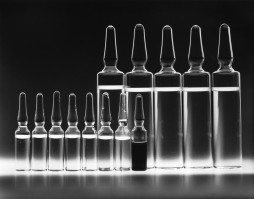
Efficacy and safety data were presented at this years ASCO annual meeting for durvalumab, a selective programmed-death ligand-1 (PD-L1) antibody, in patients with advanced urothelial bladder cancer (UBC).
Preliminary results of the phase I/II trial showed an objective response rate (ORR) of 31% in all evaluable patients (95% confidence interval (CI): 18%-47%) and 46% (95% CI: 28%-66%) in patients with PD-L1-high-expressing tumours.
Dr. Christophe Massard, Head of Early Clinical Trials at the Institut Gustave Roussy, Villejuif, France, said: “These positive preliminary data continue to support durvalumab’s clinical efficacy and safety profile for the treatment of bladder cancer, and confirm durvalumab as a potential breakthrough therapy for a patient population with enormous unmet need.”
For an interview with Dr Massard, click here.
Durvalumab is also being studied as monotherapy or in combination with tremelimumab, in non-small cell lung (NSCLC), head and neck, bladder, gastric, pancreatic, hepatocellular carcinoma (HCC) and blood cancers.
Disease control rate (DCR), defined as confirmed complete or partial response or stable disease for 12 or more weeks, was 48% (95% CI: 32%-64%) in all evaluable patients, and 57% (95% CI: 37%-76%) in patients with PD-L1-high-expressing tumours.
Median duration of response had not yet been reached.
Durvalumab 10mg/kg was administered every two weeks intravenously for up to 12 months, and demonstrated a manageable safety profile among all patients (n=61).
The most common adverse events reported in 5% or more of patients were all grade 1 or 2: fatigue (13%), diarrhoea (10%), decreased appetite (8%), arthralgia (7%), asthenia (7%), nausea (7%) and pyrexia (7%).
Three patients experienced treatment-related Grade 3 adverse events (1 acute kidney injury, 1 infusion-related reaction and 1 tumour flare).
David Berman, Senior Vice President, Head of Oncology Innovative Medicines at MedImmune, said: “The efficacy data for durvalumab monotherapy in second-line bladder cancer are very encouraging, and confirm confidence in our diagnostic assay where the magnitude of response to durvalumab is clearly linked to PD-L1 expression. We look forward to continued exploration of durvalumab’s potential in our first-line bladder cancer trial, DANUBE, both as monotherapy and in combination with tremelimumab.”
Source: ASCO 2016
The World Cancer Declaration recognises that to make major reductions in premature deaths, innovative education and training opportunities for healthcare workers in all disciplines of cancer control need to improve significantly.
ecancer plays a critical part in improving access to education for medical professionals.
Every day we help doctors, nurses, patients and their advocates to further their knowledge and improve the quality of care. Please make a donation to support our ongoing work.
Thank you for your support.